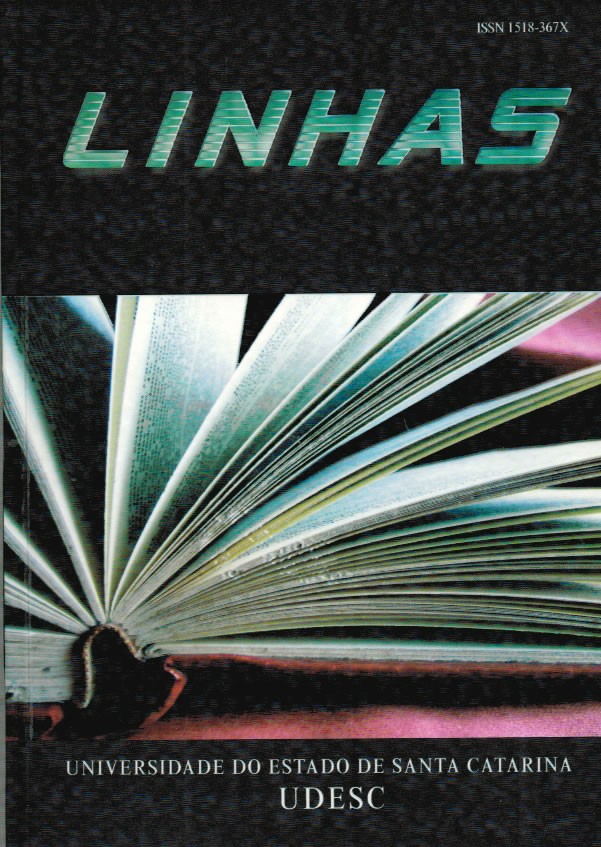Pós-Modernidade e a Educação <br> Post-Modernity and Education
Abstract
Para efeitos didáticos, o texto está fragmentado em três partes distintas, porém interligadas entre si, analisa a pós-modernidade e a educação. Na primeira parte “situando a pós-modernidade”, valendo-se de arcabouço teórico acurado, o autor situa, conceitua e caracteriza a pós-modernidade, rejeitando a idéia de que há uma visão racional global, capaz de explicar todos os fenômenos. Em decorrência desta nova concepção de mundo, questiona a universidade, tributária dos princípios modernos da razão e do Estado, que está em um período de transição e sem um paradigma ancoradouro, capaz de dar sustentabilidade às funções básicas de ensino, pesquisa e extensão. Na segunda parte “pós-modernidade e a educação”, numa primeira instância, analisa-se a economia global, a exclusão social e os avanços oriundos da ciência e da tecnologia, que mudaram radicalmente a cultura. À luz desses câmbios, discutem-se as funções da escola e o currículo, apresentando-se a interdisciplinaridade como uma saída para o caos pedagógico. De maneira sinóptica, analisa-se a violência, que a partir dos anos 90, em face da exclusão social e a instalação da indústria do medo, faz parte do cotidiano pós-moderno. Como culminância, nas considerações finais, busca-se resgatar a finalidade de uma verdadeira educação, ou seja, a formação de cidadãos cosmopolitas galgados em valores morais, éticos, cognitivos e afetivos, capazes de viver equilibradamente em uma aldeia global insegura, cheia de medos, incertezas e sem um quadro paradigmático amplo, que norteie o pensamento, os sentimentos e as ações.
Palavras-chave: Universidade. Pós-Modernidade. Educação. Interdisciplinaridade. Tecnologia.
Abstract: For didactic purposes, the text is divided into three different, but interconnected parts. In the first one - “placing post-modernity”, by having recourse in an accurate theoretical framework, the author places, gives concept and characterizes post-modernity, rejecting the idea that there is a global rational view capable of explaining all the phenomena. As a consequence of this new concept of world, it questions about the university, seen as an assessment of the modern principles of reason and the State. According to him, the university is in a period of transition and without a grounding paradigm, capable of giving sustainability to the basic functions of teaching, research and expansion. In the second part – “post-modernity and education”, it is analyzed at first the global economy, the social exclusion and the progress arising from science and technology that changed culture radically. Taking these changes into account, he debates the roles of school and the curriculum and presents that interdisciplinary study as a way out for the pedagogical chaos. In a synoptic manner, he analyzes violence, that due to social exclusion and the settlement of the fear industry from the nineties and on, is part of the post-modern everyday life. As a climax, in the final observations, it seeks to rescue the aim of real education, in other words, the upbringing of cosmopolitan citizens based on moral, ethical, cognitive and affective values, capable to have well-balanced lives in an insecure global village, full of fears, uncertainties and without a broad paradigm to guide thoughts, feelings and actions.
Keywords: University. Post-Modernity. Education. Interdisciplinary Study. Technology.
Downloads
Downloads
Published
How to Cite
Issue
Section
License
Os artigos publicados pela revista são de uso gratuito, destinados a aplicações educacionais e não comerciais. Os direitos autorais são todos cedidos à revista. Os artigos cujos autores são identificados representam a expressão do ponto de vista de seus autores e não a posição oficial da Revista Linhas ou do Programa de Pós-Graduação em Educação da Universidade do Estado de Santa Catarina.

A Revista Linhas está licenciada com uma Licença Creative Commons - Atribuição-NãoComercial-SemDerivações 4.0 Internacional.


